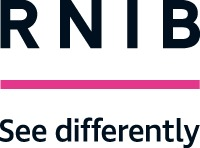
We use cookies on this site to enhance your user experience. By continuing to use our site, you are agreeing to our use of cookies. Read our updated Privacy Policy and cookies policy for further information..
Some mandatory fields are not completed

© 2014-2020 Royal National Institute of Blind People A registered charity in England and Wales (no. 226227), Scotland (no. SC039316) and the Isle of Man (no. 1226). Also operating in Northern Ireland. A company incorporated by Royal Charter. Registered in England and Wales (no. RC000500). Registered office 105 Judd Street, London WC1H 9NE